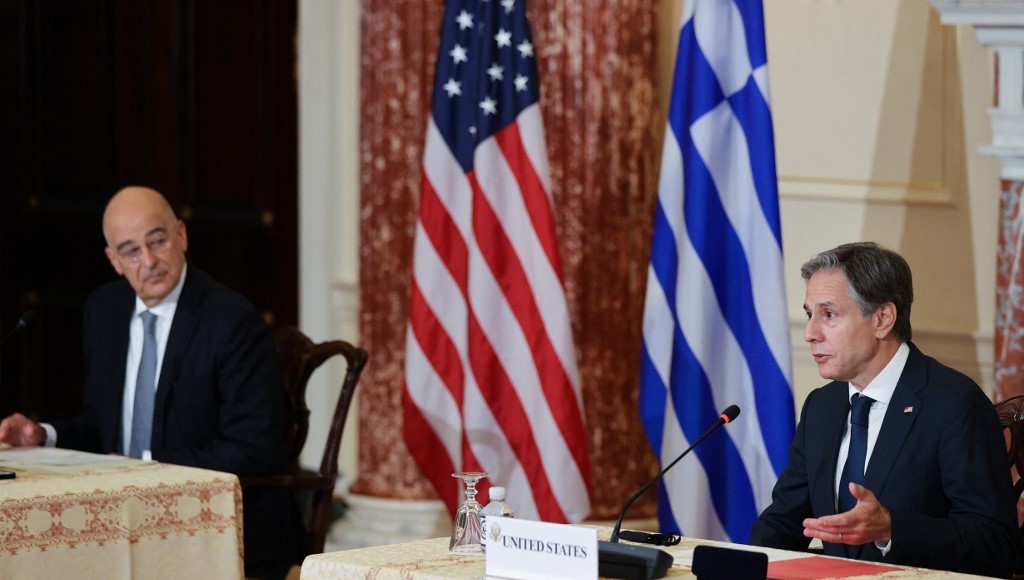The United States and Greece signed a deal Thursday expanding their defense cooperation agreement to grant US forces broader use of Greek bases, as that nation deals with tensions between it and neighboring Turkey, The Associated Press reported.
The deal, signed in Washington by Secretary of State Antony Blinken and Greek Foreign Minister Nikos Dendias, will allow US forces to train and operate “in an expanded capacity” at four additional bases in Greece, Dendias said.
“This is not an agreement…against anybody else,” Dendias said in an interview with The Associated Press after the signing ceremony, although he noted the new agreement put a US military presence just miles (kilometers) from Turkey. ”It’s an agreement between Greece and the United States of America, and the purpose of the agreement is the stability and prosperity of both our countries.”
Greece is pinning much of its defense strategy on close military cooperation with France and the United States as it remains locked in a volatile dispute with Turkey over sea and airspace boundaries. Greek officials also have been actively pursuing other international agreements, with partners in the Middle East, Europe and elsewhere.
Blinken at Thursday’s signing ceremony called the US and Greece “two proud, strong NATO allies, both deeply committed to our alliance.” Thursday’s agreement, building on an existing one, will run for five years with automatic renewal, Greek officials said.
NATO – the North Atlantic defense bloc to which the US, Turkey, France and Greece all belong – is built on the idea of collective defense, so that an attack on one member nation is considered an attack at all.
NATO Secretary-General Jens Stoltenberg earlier this month appeared to criticize Greece’s newly ratified mutual defense agreement with France, without naming the two countries. “What I don’t believe in is efforts to try to do something outside the NATO framework, or compete with or duplicate NATO,” Stoltenberg said then.
Dendias, speaking at the residence attached to the Greek Embassy in Washington, said Greece’s mutual defense deal with France “is an agreement that is complementary to NATO.”
“It does not diminish the role of NATO,” he added.
NATO members Greece and Turkey are at odds over sea boundaries and mineral rights in the eastern Mediterranean, spurring Athens to launch a major spending program to modernize its armed forces.
Turkey in turn accuses Greece of overstating its own territorial claims to the Aegean and other waters.
Thursday’s US-Greece agreement builds on one signed in Athens two years ago by Blinken’s predecessor, Mike Pompeo, and will give the United States increased access to two bases in central Greece and one at Alexandroupolis, near the Greek-Turkish border. The US naval base at Souda Bay, in the Greek island of Crete is also key to the defense relationship.
The Greek push to build alliances comes as the United States tries to turn more of its international focus to competition with China, reducing its military strength in some other parts of the world.
The Greek government understands the United States’ need to pay more attention to China and the Indo-Pacific overall — but argues that Greece’s neighborhood is one American forces shouldn’t leave, Dendias said.
“If the American presence is not manifested, some countries may have clever ideas about their role,” envisioning themselves as “local superpowers,” he said. “I am sometimes afraid that Turkey may be falling under that category.”


